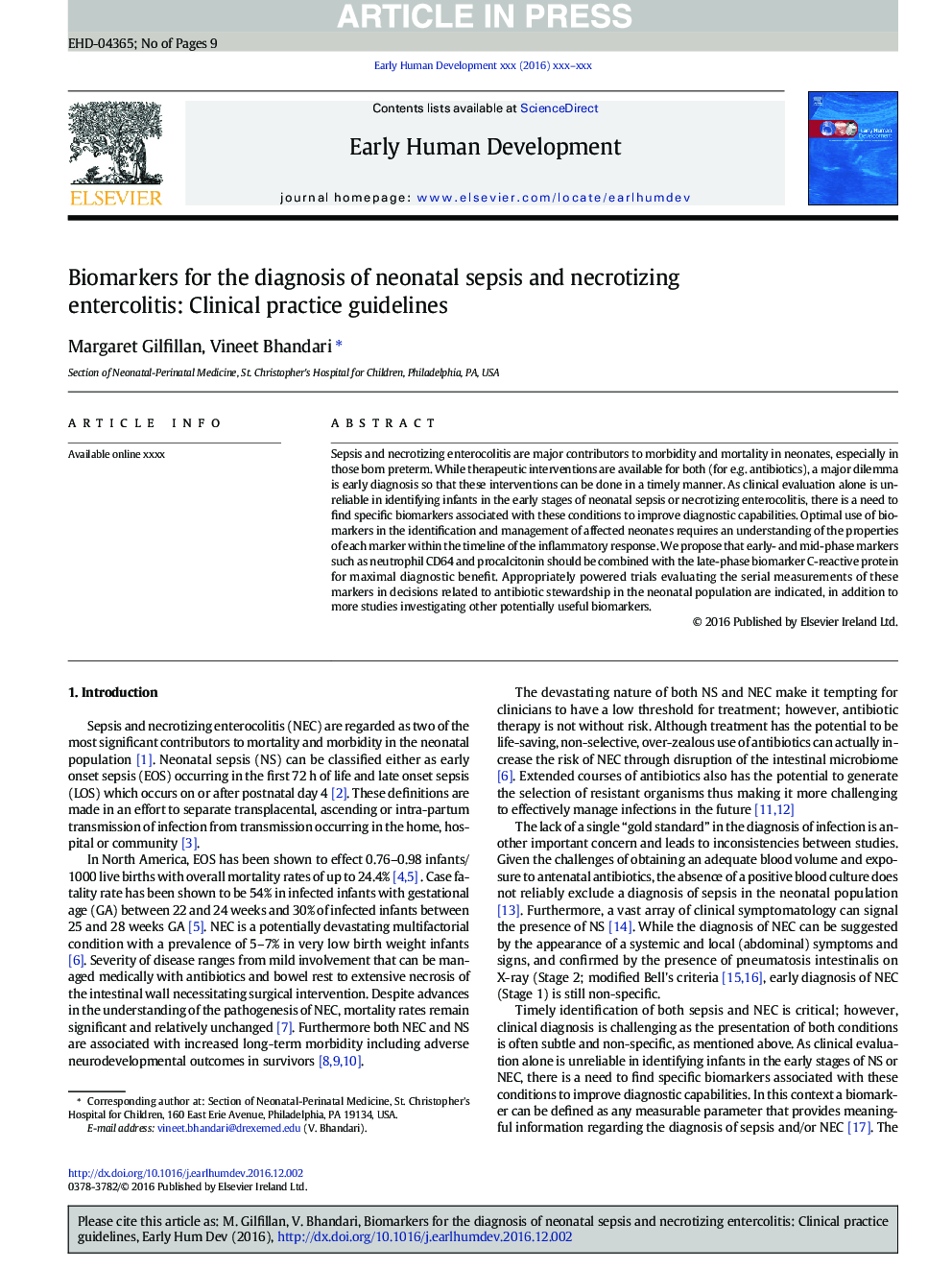| Article ID | Journal | Published Year | Pages | File Type |
|---|---|---|---|---|
| 5691316 | Early Human Development | 2017 | 9 Pages |
Abstract
Sepsis and necrotizing enterocolitis are major contributors to morbidity and mortality in neonates, especially in those born preterm. While therapeutic interventions are available for both (for e.g. antibiotics), a major dilemma is early diagnosis so that these interventions can be done in a timely manner. As clinical evaluation alone is unreliable in identifying infants in the early stages of neonatal sepsis or necrotizing enterocolitis, there is a need to find specific biomarkers associated with these conditions to improve diagnostic capabilities. Optimal use of biomarkers in the identification and management of affected neonates requires an understanding of the properties of each marker within the timeline of the inflammatory response. We propose that early- and mid-phase markers such as neutrophil CD64 and procalcitonin should be combined with the late-phase biomarker C-reactive protein for maximal diagnostic benefit. Appropriately powered trials evaluating the serial measurements of these markers in decisions related to antibiotic stewardship in the neonatal population are indicated, in addition to more studies investigating other potentially useful biomarkers.
Related Topics
Health Sciences
Medicine and Dentistry
Obstetrics, Gynecology and Women's Health
Authors
Margaret Gilfillan, Vineet Bhandari,
